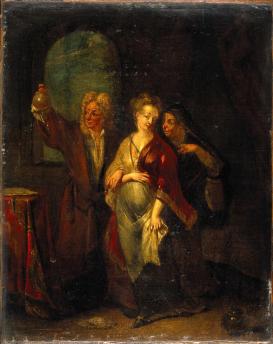How does human life begin? How do we know when it has started? Such questions are still debated today, but they were also hotly contested in the early modern world. For both lay people and medical practitioners, particularly those engaged in the study of generation, the origins and development of life posed many abstract and concrete issues. In the time before reliable pregnancy testing, generation was an obscure process, with no guarantee that what seemed to be a pregnancy would indeed result in the birth of a human infant. Physicians argued in their treatises that it was impossible to determine whether a woman was truly pregnant with a fetus, while women wrote in their letters and diaries that they doubted the “truth” of their apparent pregnancies.
My project explores the life sciences, medical knowledge and practice, and women’s knowledge about generation to better understand how reproduction came to be conceptualized as inherently uncertain. By analyzing anatomical studies of generation and physic treatises alongside women’s experiences, the project aims to trace the contours of this uncertainty in the early modern world. Examining generation from this angle, I consider the processes by which early moderns translated their uncertain experiences of generation into accepted or practical knowledge.

